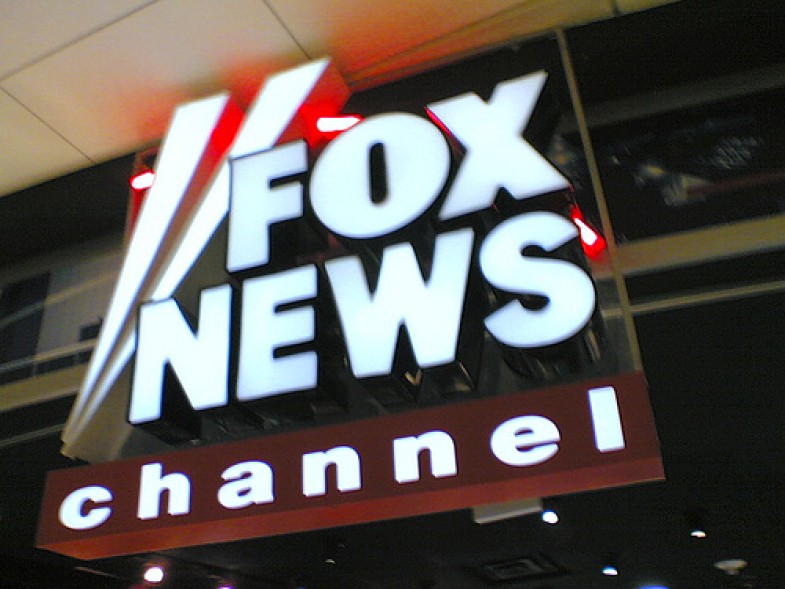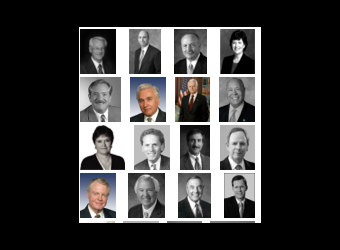It’s easy to forget that the broadcasting airwaves are—and once were treated as—a commons, owned by citizens, not powerful media companies.
At the dawn of the broadcasting era, the free market prevailed. The government set no rules. The 1912 Radio Act authorized the federal Commerce and Labor Department to issue radio station licenses to U.S. citizens upon request. Which it did, resulting in chaos. By 1922, 564 broadcasting stations were operating and their signals were often interfering with one another, which threatened to kill the budding industry in the cradle. Radio station owners asked the government to step in and fix the mess.
The question was how to do it. Several options were on the table. The U.S. Navy might have controlled all broadcasting, as it wanted to do. Frequencies could have been auctioned off to the highest bidders.
Or the U.S. could have created the equivalent of the British Broadcasting Company. The original British Broadcasting Company was founded in 1922 by a group of six private telecommunications companies. In late 1926 the British Broadcasting Company became the British Broadcasting Corporation with exclusive control of the airwaves under the terms of a Royal Charter. The Charter outlined the BBC’s public services: sustaining citizenship and civil society; promoting education and learning; stimulating creativity and cultural excellence.
The BBC is required by its charter to be free from both political and commercial influence and to answer only to its viewers and listeners.The Royal Charter also prohibits the BBC from showing commercial advertising on any services in the United Kingdom (television, radio, or internet). It is funded from a license fee imposed on radio and TV sets sold in Great Britain. In order to justify the license fee, the BBC is expected to maintain a large share of the viewing audience in addition to producing programs that commercial broadcasters would not normally broadcast.
The U.S. chose not to emulate Britain, and went instead for commercial broadcasting on privately owned stations, but not privately owned frequencies. The Radio Act of 1927 declared the airwaves a public resource. Broadcasters paid no money for their station licenses but in return they received no property rights to the frequency. The short-term license’s renewal was supposed to depend on whether the station served the public interest. Broadcasters were deemed “public trustees”. As the Federal Radio Commission (FRC), forerunner of the Federal Communications Commission (FCC) explained, “the station must be operated as if owned by the public…It is as if people of a community should own a station and turn it over to the best man in sight with this injunction: ‘Manage this station in our interest…’” The Commission made clear there was no room for “propaganda stations” as opposed to “general public-service stations”.
In 1930 the FRC made concrete the meaning of public interest by denying a license renewal to a Los Angeles station used primarily to broadcast sermons that attacked Jews, Roman Catholic church officials and law enforcement agencies. In 1949, the FCC made more concrete what it meant by the public interest when it introduced what later became known as the Fairness Doctrine. Broadcasters had to devote “a reasonable percentage of time to coverage of public issues; and [the] coverage of these issues must be fair in the sense that it provides an opportunity for the presentation of contrasting points of view”.
In 1959, Congress reaffirmed that the Fairness Doctrine had statutory authority by amending the Communications Act of 1934. In 1969 the U.S. Supreme Court upheld the application of that Doctrine, noting, “Congress need not stand idly by and permit those with licenses to… exclude from the airwaves anything but their own views of fundamental questions.” In 1974, the FCC called the Fairness Doctrine “the single most important requirement of operation in the public interest…”.
In filing their applications for license renewal, stations had to provide detailed information on their efforts to seek out and address issues of concern to the community. The became the basis for determining whether licenses should be renewed.
The Information Commons Dismantled in the Age of Reagan
With the ascension of Ronald Reagan to the Presidency in 1980, the rules for broadcasting licenses suddenly changed. The FCC eliminated the requirement that licensees provide detailed program information as the basis for license renewal.
In 1984, the FCC eliminated programming guidelines that set minimums for news and public affairs programming, and discontinued enforcing the Fairness Doctrine. When citizens groups sued to reinstate the doctrine, Appeals Court Judges Robert Bork and Antonin Scalia, two Reagan appointees, concluded that the Fairness Doctrine itself was not a law but a guideline. In August 1987 the FCC unanimously decided that the Fairness Doctrine was contrary to the public interest.
This put the ball in Congress’ court. The House voted by by an overwheming 3-1 margin and the Senate by a margin of almost 2-1 to pass a bill that clarified that the Fairness Doctrine was indeed the law. Among those voting in favor the Fairness Doctrine were leading conservatives like Rep. Newt Gingrich and Sen. Jesse Helms. But Ronald Reagan vetoed the bill. There were insufficient votes in the Senate to override the veto.
The failure of that effort transformed radio (and then television) into a potent and one-sided political voice. Until then call-in talk radio had complied with FCC community service requirements by focusing on public interest issues and presenting all viewpoints.
A few months after the FCC dropped the Fairness Doctrine Rush Limbaugh’s unique program format with its in-your-face-attitude and one-sided perspective was syndicated. Limbaugh marketed his show in an unprecedented fashion, by offering it free of charge to stations across the nation. Within weeks 56 stations had picked up the show; within four years over 600 stations were carrying it, the fastest spread of any talk show in history. Others imitated Limbaugh’s format. The number of radio talk stations more than doubled from 1987 and 1993.
In 1993, the nation discovered the political power of this new entity. The Democratic Congress and newly elected Democratic White House revived the effort to make the Fairness Doctrine law. Rush mobilized his listeners. The bill never came up for a vote. According to National Public Radio, “privately, top aides in both the House and Senate admit that efforts to reimpose the doctrine have been put on hold in large part due to the talk show hosts.”
In 1994, talk radio made itself felt in national elections. When the Republicans stunningly captured the House of Representatives that year, for the first time in almost 40 years, Newt Gingrich called it “the first talk radio election”. In early 1995, the Republican Party held a special ceremony in honor of Limbaugh, naming him “an honorary member of Congress”. They dubbed him, “the majority maker”.
The new conservative majority led to waves of giveaways to powerful media corporations, the outright sale of frequencies, and the reversal of the foundational rules of the airwaves, nearly wiping out any acknowledgment that the airwaves belong to the people and should be managed as a public trust.
Fifteen years later talk radio has changed the nature of political discourse. Some persuasively argue it has changed our very culture. Media scholar Henry Giroux describes a “culture of cruelty” increasingly marked by racism, hostility and disdain for others, coupled with a simmering threat toward any political figure who comes into the crosshairs of what many now call hate radio.
Seventy five years after the Federal Radio Commission declared no room on the public airwaves for “propaganda stations” and denied a license renewal to a station that attacked Jews and law enforcement agencies, air waves are filled with both propaganda and venom. Today the airwaves, stripped of commons rules, feed hatred.






